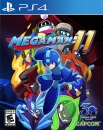Kyuu said:
But a 5 year cycle would be a terrible idea bearing in mind production costs and diminishing returns. And it was never really the standard gap between successful consoles. It was always 6-7 years barring rare cases like GBA to DS (which iirc was rushed out of concerns about PSP dominating) and MegaDrive to Saturn (which was a failure). GameBoy Advance launched 12 years after GameBoy, ignoring GameBoy Color. Personally I would be fine with 8-10 years cycles, because technology just isn't advancing meaningfully anymore, and I'd upgrade my PC or buy a PS5 Pro if I care. Eventually, mobile phones and smart TV's will replace console/PC as the primary "console/PC gaming" devices, because the average person won't care for the bells and whistles highend consoles and PC's provide. Genshin Impact (console tier game) launched on mobile phones in 2020 to an unprecedented success. In 10 years, god knows how many major games will launch simultaneously on consoles/PC and mobile. Perhaps game engines will suddenly evolve to a point where highend hardware will be required for unique experiences that are obviously impossible on 2035 mobile phones, but I'm not holding my breath. |
Going off my region (US), NES to SNES was six years. SNES to N64 was five years. Genesis to Saturn was five years. Saturn to Dreamcast was five years. N64 to Gamecube was five years. PS1 to PS2 was five years. Xbox to Xbox 360 was four years. PS2 to PS3 was six years. Gamecube to Wii was five years.
As you can see, five/six years was pretty standard up until Sony and Microsoft thought it was wise to drag the PS3/360 corpses far past their expiration dates, and the former was the era I grew up in, so it's what I'm use to. Anything longer than five years, and I'm checking out. Heck, at four years things start to get stale for me. I like new consoles, new experiences. It's just my preference.






















































